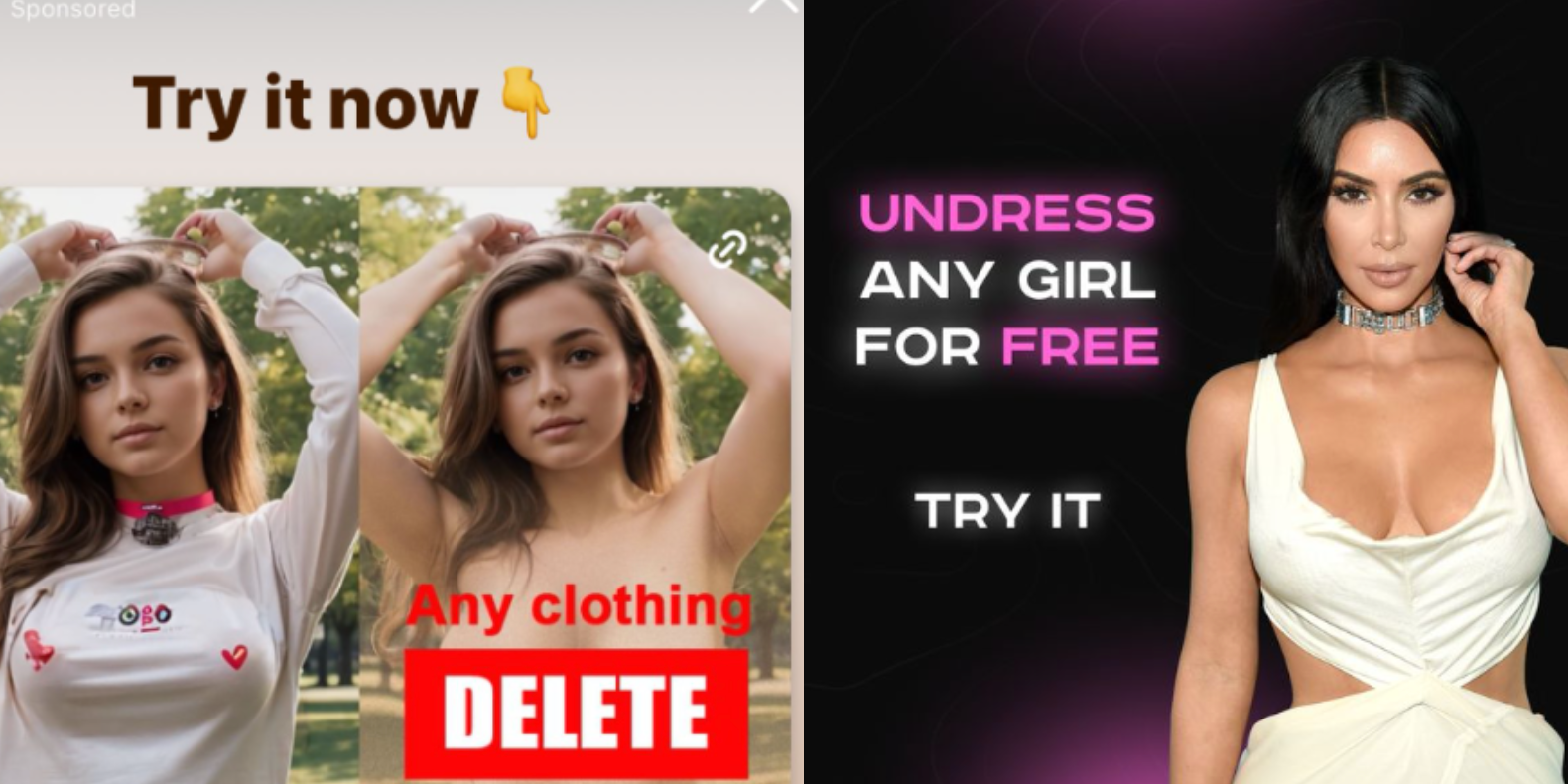- cross-posted to:
- technology@beehaw.org
- cross-posted to:
- technology@beehaw.org
Instagram is profiting from several ads that invite people to create nonconsensual nude images with AI image generation apps, once again showing that some of the most harmful applications of AI tools are not hidden on the dark corners of the internet, but are actively promoted to users by social media companies unable or unwilling to enforce their policies about who can buy ads on their platforms.
While parent company Meta’s Ad Library, which archives ads on its platforms, who paid for them, and where and when they were posted, shows that the company has taken down several of these ads previously, many ads that explicitly invited users to create nudes and some ad buyers were up until I reached out to Meta for comment. Some of these ads were for the best known nonconsensual “undress” or “nudify” services on the internet.



I think we’ve just stumbled on an issue where the rubber meets the road as far as our philosophies about privacy and consent. I view consent as important mostly in areas that pertain to bodily autonomy right? So we give people the rights to use our likeness for profit or promotion or distribution. And what we’re giving people is a mental permission slip to utilize the idea of the body or the body itself for specific purposes.
However, I don’t think that these things really pertain to private matters. Because the consent issue only applies when there are potential effects on the other person. Like if I talk about celebrities and say that imagining a celebrity sexually does no damage because you don’t know them, I think most people would agree. And so if what we care about is harm, there is no potential for harm.
With surveillance matters, the consent does matter because we view breaching privacy as potential harm. The reason it doesn’t apply to AI nudes is that privacy is not being breached. The photos aren’t real. So it’s just a fantasy of a breach of privacy.
So for instance if you do know the person and involve them sexually without their consent, that’s blatantly wrong. But if you imagine them, that doesn’t involve them at all. Is it wrong to create material imaginations of someone sexually? I’d argue it’s only wrong if there is potential for harm and since the tech is already here, I actually view that potential for harm as decreasing in a way. The same is true nonsexually. Is it wrong to deepfake friends into viral videos and post them on twitter? Can be. Depends. But do it in private? I don’t see an issue.
The problem I see is the public stuff. People sharing it. And it’s already too late to stop most of the private stuff. Instead we should focus on stopping AI porn from being shared and posted and create higher punishments for ANYONE who does so. The impact of fake nudes and real nudes is very similar, so just take them similarly seriously.